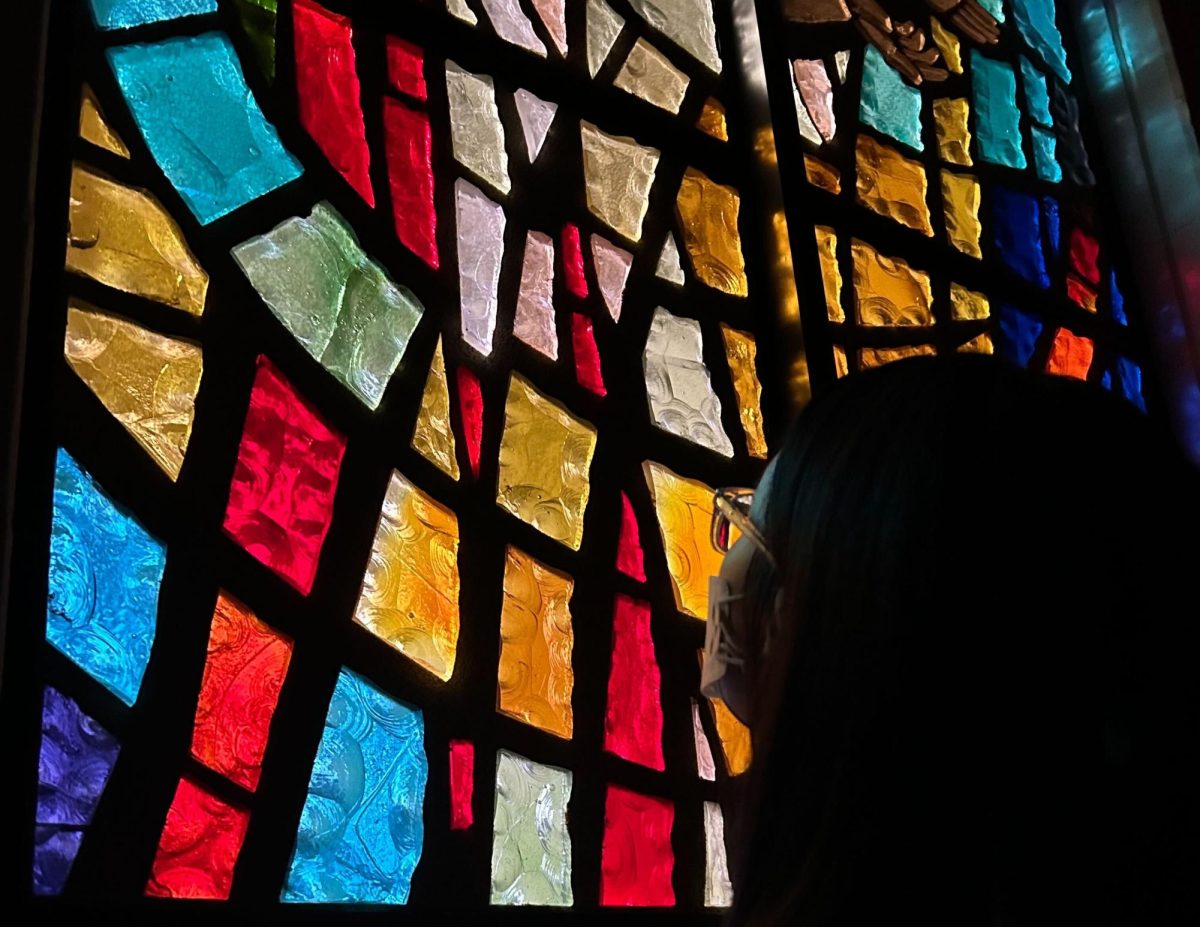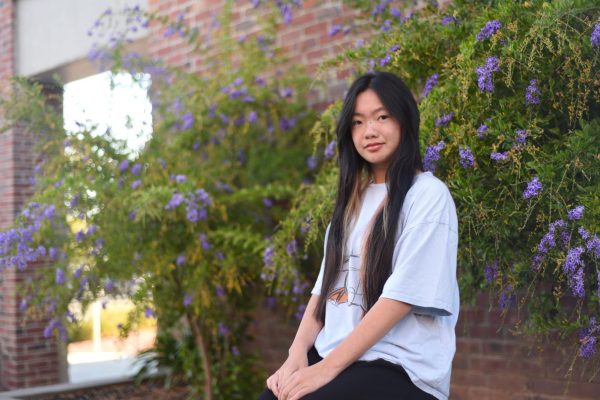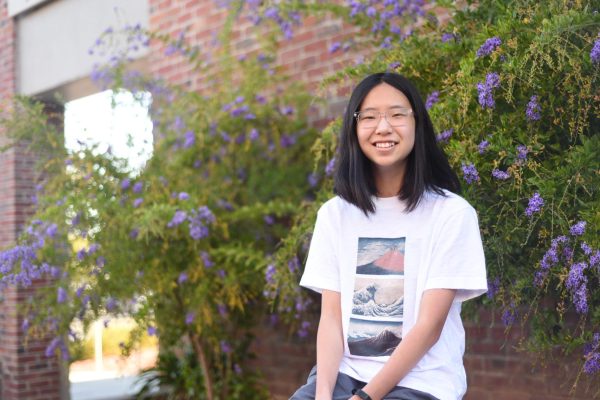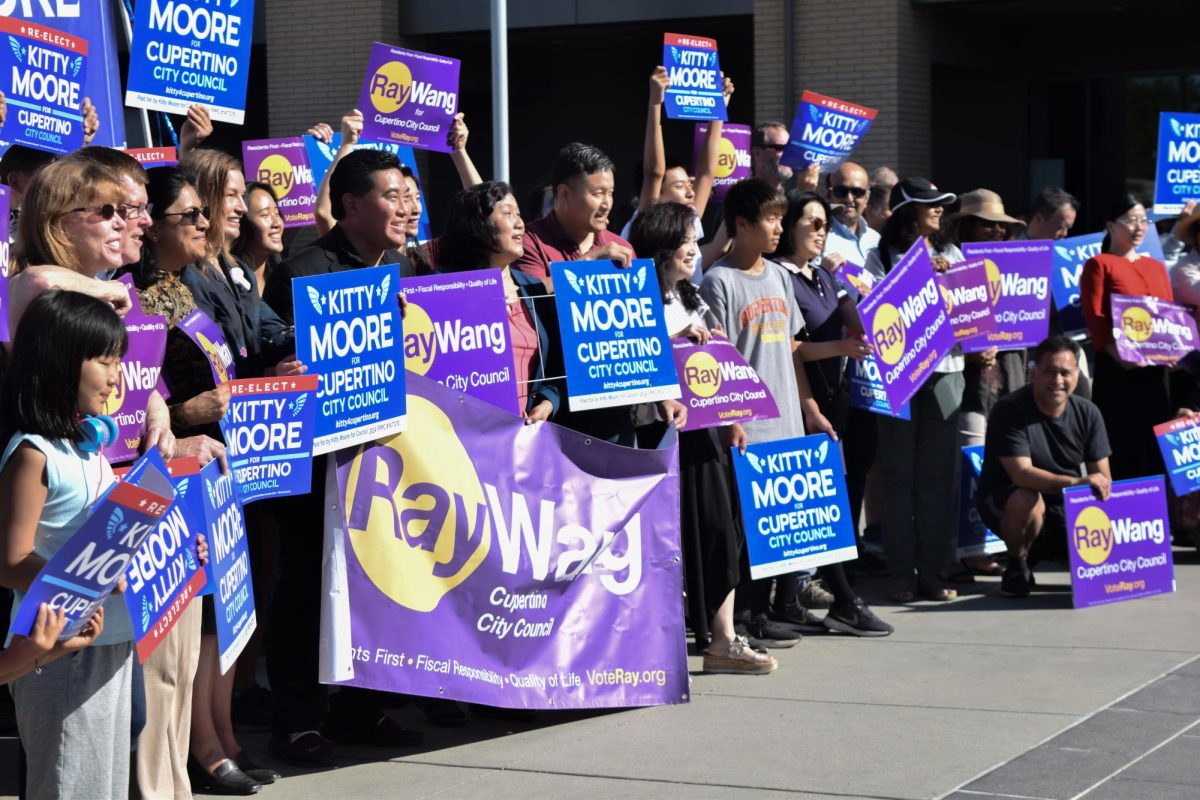Beneath the intricate red, gold and white structures of the temple, Buddhist worshippers lower their heads in silent meditation. Freshman Kaishan Lin joins the congregation, praying before statues of Buddhist deities surrounded by fluttering prayer flags and towering pillars. For Lin, these moments are more than rituals — they are ties to a tradition that has endured across continents and centuries.
According to Lin, such traditions help him create bonds with others as they offer a shared language of belief. Even after moving from Malaysia to the United States in 2022, which shifted his usual religious schedule, Lin still feels secure in his beliefs due to the traditions he shares with his family.
“Now in America, sometimes I’ll pray, sometimes I don’t,” Lin said. “It’s just not as strict anymore because I’m not in my home country. But I still see a lot of people who believe in Buddhism, and whenever a usual tradition comes up, my grandma messages me, so I feel like we’re all still connected in some way.”
According to English teacher Rachel Cassar, this interconnectedness is not just an ideal but a practice central to Christianity. As a member of a house church, where a small group of Christians gather together to worship at a member’s house, she feels that the more intimate nature allows for deeper conversations that otherwise would not be possible at a larger church. She recalls a recent moment when one of her friends from her house church had a medical emergency during childbirth, leaving their other children in need of care. With no hesitation, her church community came together and supported the family.
“I see those children at least once or twice a week and have gotten to watch them grow up, so in some ways, we’re almost like a family,” Cassar said. “It’s hard when you’re actually part of someone’s life — to be loving, to be generous, to be a listener, to want to get involved in their lives and serve them. If we want to be like Jesus, we have to practice relating to other people. It would be really hard to be a Christian alone.”
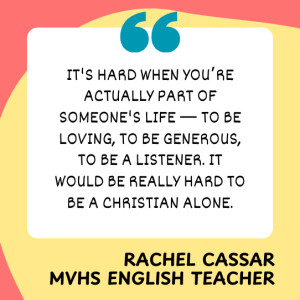
For junior Minahil Kizilbash, who is Muslim, community also plays a large role in her connection to both her beliefs and her religious family. Through celebrating holidays such as Eid al-Fitr and Eid al-Adha, observing Ramadan and volunteering for events at her mosque, Kizilbash has felt more connected to her faith. She explains how in Islam, everyone is viewed as brothers and sisters, fostering a welcoming group that advises and connects each other.
“If you don’t have a community, you can feel isolated because you have no one to answer your questions, and no one really relates to your struggles,” Kizilbash said. “After COVID-19, involvement in our community has definitely become a lot stronger because when Muslims are dying, we all come together to pray and mourn for them. It has become a lot more tight-knit, but it’s also really welcoming to new Muslims and converts so that more people can come and join us.”
Cassar agrees with the importance of having a tight but also diverse community, noting that being surrounded by people of various ages has provided her new insights into her religion. However, she also believes that the Bay Area, known as one of the most unchurched regions in the United States, has been contributing to a decreasing Christian population in Cupertino.
Additionally, Kizilbash believes that toxicity contributes to a declining religious population in general. She highlights that while mosques aim to unite people of diverse backgrounds in worship, the blending of people of different personalities, cultures and races can sometimes create a tense environment.
“If you’re in a toxic community, it’ll give you a bad impression because you’ll think that that community is what represents the religion,” Kizilbash said. “When the community is toxic, people will think ‘Oh, my religion is toxic too,’ which causes them to leave that religion. Whereas in a good community, people would be more eager to learn and welcome to the religion.”
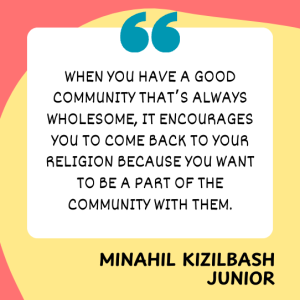
Lin believes that the stability of a religious community lies in the preservation of religious traditions and faith for future generations.
“I think my grandparents would be disappointed if such a long-standing religion that’s been passed down for generations were to be destroyed because of a lack of community,” Lin said. “It would be unfair to many people, especially for those who have followed Buddhism for most of their lives.”
While Kizilbash found her faith wavering, especially in high school as harsh realities set in and insecurities about her appearance grew, a healthy community helped ground her and inspired her to reconnect with her religion.
“My friend brought me back to my religion because she was practicing Islam in such a beautiful way that it influenced me to be better,” Kizilbash said. “When you have a good community that practices together and is always wholesome, it encourages you to come back to your religion and join them because you want to be a part of the community with them.”




